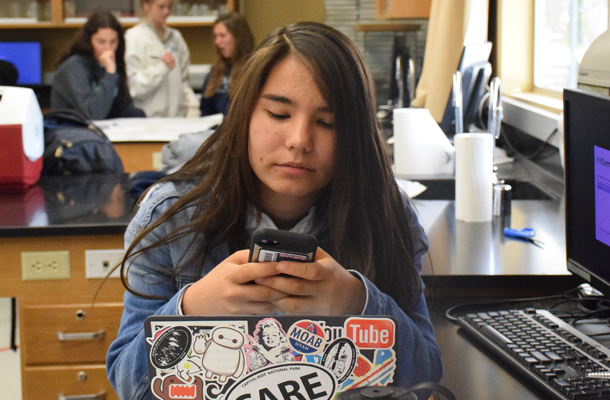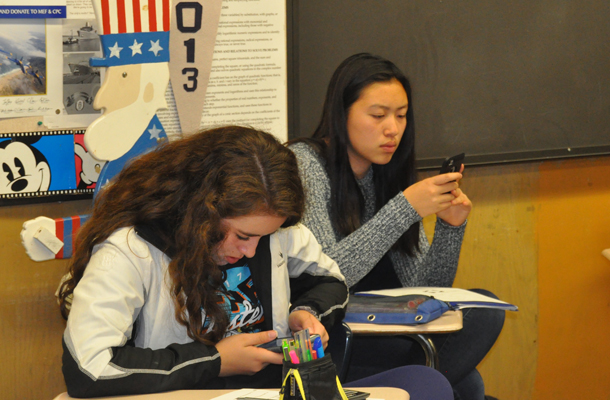Phone Addiction Foils Wellness Efforts
May 17, 2018
The development of smartphone technology may have been a revolutionary event in human history, but not all revolutions bring about exclusively positive consequences.
A couple of years ago, I was sitting on the beach in San Diego with a group of friends, watching the sunset. Well, I thought we were all watching the sunset. I looked over, and nearly all of my companions had their faces in their phones.
Smartphone technology’s problematic dark side, especially for teens, is phone addiction.
According to Common Sense Media, 50% of teens admit to feeling addicted to their mobile devices. In addition, The Washington Post found that 15-18 year olds spend 9 hours a day using media, especially on their smartphones and tablets.
Why does this matter? Addiction to smartphones means social isolation, withdrawal from other activities, a disrupted sleep schedule, to name just a few negative consequences. Phone usage has also been linked to depression, as reported by NPR.
Smartphone obsession is self destructive and sad. How can you enjoy life if you spend much of it staring at a screen?
I had my first phone when I was 13. Before then, I would call myself a sociable person, and the most important thing to me was spending time with family. But the tiny device has drawn me away from family– Sadly, this fact had to be pointed out to me. My addict
ion had started without me being aware of it.
Now spending time with family feels like a burden as I experience yearnings for my phone rather than appreciation for the people right in front of me.
Campolindo students are particularly infected with this new disease. Between obsessing over social media in class and watching videos in the library, phone usage has become ubiquitous and endemic. Some of my friends even scroll through their social media while sitting in the front row of their classrooms, right in front of their teachers.
In addition to being an obvious distraction, increased dependence on smartphones may have even more negative consequences. PBS news has found a correlation between increased phone usage and lower academic performance. They also reveal a connection between smartphones and growing stress among students.
It’s no longer just fantasy talk to envision a future where we are constantly surrounded by screens, unable to tell the difference between what is real and what is a simulation. It could be a future dominated by media giants like Snapchat and Instagram, constantly peering into our private lives, even controlling our behavior. Our individuality, our personality will be destroyed as our digital profiles consume our real selves.
This is dangerously close to reality for some people. The worlds within our phones are already manipulating my peers. Rather than the phone being a distraction from school work, school work is now a distraction from the phone.
School, the monotony of daily life, can be unsatisfying at times. Yet I fear our attempt at diversion through our cell phones may be leading us to an even more empty and unfulfilling existence.
Happiness can’t be sustained by immersing ourselves exclusively in a simulated world. It is real life, face-to-face connections with other human beings that provides true social satisfaction and the opportunity for emotional growth and mental health. If students, teachers and parents are truly concerned with cultivating wellness, they all need to acknowledge this problem with cell phone use and actually move to solve it.


